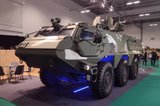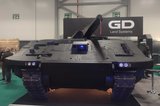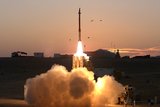Plasan and Q-Flo announce joint venture
Plasan, a global leader in survivability and combat-proven armor solutions and Q-Flo, University of Cambridge spin-out company, today announced the formation of TorTech Nano Fibres Ltd, a joint venture between the two companies.
TorTech, based in Israel, will produce carbon nanotube fiber for the enhancement of body armor and composite armor systems for vehicles. The new material is stronger than Kevlar and other ballistic fabrics, but still flexible and lightweight.
Q-Flo's CEO, Dr. Dai Hayward, commented: "We are delighted to partner with Plasan to further develop the world leading research by Prof. Alan Windle and Dr. Martin Pick, initially within the Department of Materials Science at Cambridge University and for the last 4 years in Q-Flo. Through Tortech, we intend to produce a carbon nanotube-based yarn, which can be woven into the strongest-ever manmade material. Plasan's expertise will then enable the design and production of a revolutionary new range of body and vehicle armor."
CEO of Plasan Group, Dan Ziv, said: "Nano fiber with mechanical properties as carbon nanotube fiber could lead to a breakthrough in structural composites and light weight armor applications. This is an exciting venture since we believe Q-Flo's carbon nanotubes have the potential to revolutionize the defense industry through a new range of lightweight,
flexible and incredibly strong armored material."
Plasan will have exclusive sales and marketing rights to defense-orientated materials, whilst Q-Flo will retain rights for other potential applications.
Source: Plasan
More from Land Warfare
-
![US DoD task force’s DroneHunter acquisition lays groundwork for Replicator 2 CUAS strategy]()
US DoD task force’s DroneHunter acquisition lays groundwork for Replicator 2 CUAS strategy
As the US Department of Defense looks to counter the growing threat of uncrewed aerial systems to improve homeland security, the DroneHunter acquisition could point to future commercial innovation.
-
![Norway opts for Hanwha’s Chunmoo for long-range fires under $2 billion deal]()
Norway opts for Hanwha’s Chunmoo for long-range fires under $2 billion deal
The selection of Hanwha’s K239 Chunmoo long-range precision fires system, with a contract expected to be signed on 30 January, makes Norway the second European country to choose the system. It is expected an operational system will be in service within four years.
-
![Layered protection: How air defence is adapting to rising drone and missile threats (podcast)]()
Layered protection: How air defence is adapting to rising drone and missile threats (podcast)
A surge in aerial threats – from advanced missiles to low-cost drones – is reshaping the way militaries approach air defence, driving demand for flexible, multi-layered solutions.























